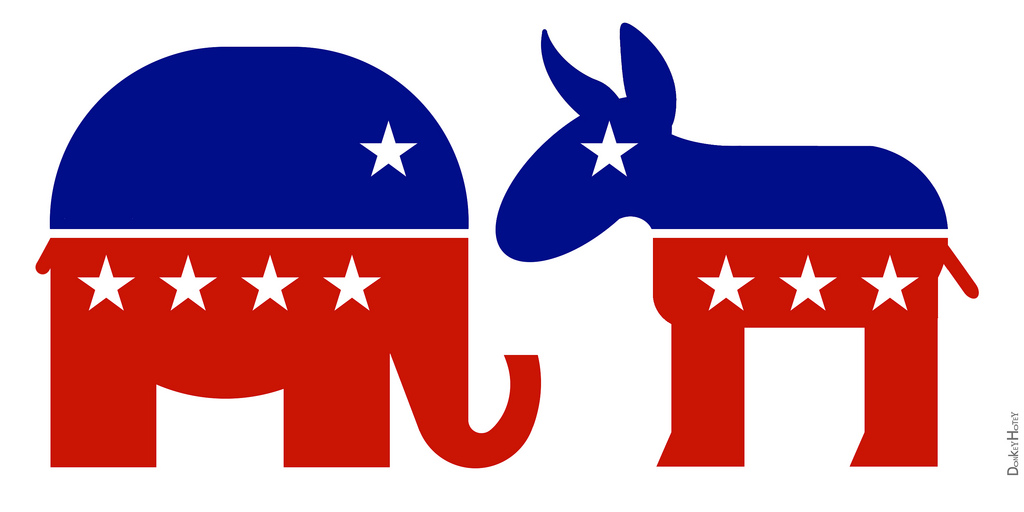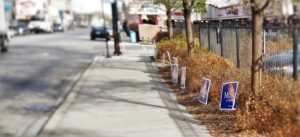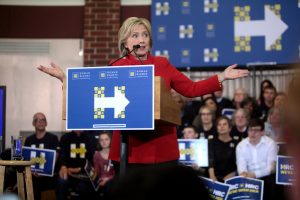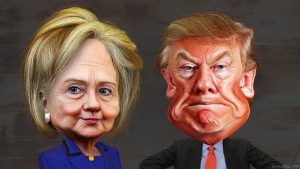
For years, Arab-American voters were swing voters, though they slightly favored the Democratic Party. But, with this election cycle, they are even more likely to identify as Democratic.
Arab-American voters usually supported the Republican Party before the 9/11 terrorist attacks, as the party identifies more with their conservative social views. But they departed from the party after the 2001 terrorists attack and George W. Bush administration’s hard-line rhetoric compromised Arab-American civil liberties.
On the other hand, the party also drifted from the community as the hard-liners took greater control of the GOP, which reached its peak with Donald Trump as their candidate.
Osama Siblani, a publisher from Dearborn, MI, said Arab-Americans couldn’t have an impact on American politics and the electoral process because Arab-Americans are not a block vote.
Siblani suggests that what divided the community is more than what unifies them. Before they had one mutual cause, the Palestinian-Israeli conflict, but today, after what so called the “Arab Spring” that started in Tunis in December 2010, they are more divided.
Siblani said the Arab-American community thinks of Hillary Clinton’s bid for the presidency as an extension of the Obama administration: eight years of promises and eight years of violation of community civil rights.
“Our civil rights eight years ago were much better than today,” Siblani said, ” People have been betrayed by the Democratic Party.”
Obama’s administration imposed more restriction on the community and the number of “hate crimes” rose during his presidency. The no- fly zone was enlarged for no reason.
Siblani said Clinton is not reaching out to the community on issues such as civil rights and solving their origin countries problems; she is reaching them on emotion and trying to scare them away from the alternative, Trump.
Robert Riggs, assistant professor of religion and politics at University of Bridgeport, in Connecticut, said we have to distinguish between the Arab-American and Muslim-American vote. Because if we include Muslim-Americans, it contains the African-American Nation of Islam, and they have different interests.
“As much as it is an irony to say this, Donald Trump and his xenophobic language could be a unifying factor for Arab-Americans,” Riggs said.
Riggs said this xenophobia among a significant segment of the American population goes back to the lack of exposure to the Arabic and Muslim communities.

In a survey of likely Arab American voters conducted nationally by Zogby Analytics Oct. 4 to 12, and released by the Arab American Institute, Democratic Clinton tops Republican Trump with 60 percent saying they’d vote for Clinton and 26 percent side with Trump.
Ten percent of Republicans and 16 percent of Independents have not declared their support for a candidate this election season, compared to two percent of Democrats. Ninety-one percent of Arab Americans report they are likely to vote in the Nov. 8th election.
Khalil Jahshan, the executive director of Arab Center in Washington, DC, said the elite of the community tend to describe themselves as Republican.
“By definition, the successful elite, particularly the American-born, tend to flock basically to the Republican Party. The new immigrants are more at home with the Democratic Party,” Jahshan said.
He said the Arab-American community shouldn’t eliminate itself from the political process and should be strategically extending its support to any candidate regardless of party, as long they meet their interest.
“This mean sometimes you have to sacrifice some of your agenda, sometimes it means looking long-term rather than a short-term to get the benefits of your vote,” Jahshan said.
He described this election as “being certainly crazy, unprecedented in many ways,” adding the demagogy and xenophobic language used in the campaign harms the Arab-American community.
“I remembered a day when candidates used to return our donations,” Jahshan said. “Arab money was unwelcome.”
Siblani said the community must organize themselves at the local level before they can have an impact nationally.
“All politics is local,” Siblani said, “If we can’t change policies in the city hall, how we are going to change it in the White House?” .







Be First to Comment